Are you considering bringing a snake into your home as a pet? Snakes are fascinating, low-maintenance companions that are perfect for reptile enthusiasts. The best snakes to have as pets are those that are easy to care for, docile, and suitable for different experience levels. In this guide, we’ll explore the top 10 pet snakes and why they make excellent additions to your family.
For more exotic pet options, check out Exotic Pets for Emotional Support
Benefits of Having a Snake as a Pet
Snakes offer unique advantages compared to traditional pets. They are quiet, require minimal space, and are relatively easy to care for with the proper setup. Additionally, their low-maintenance nature and fascinating behaviors make them ideal for busy individuals or those seeking a unique companion.
To learn more about low-maintenance pets, visit Low-Maintenance Pets with Emotional Benefits.
Factors to Consider Before Choosing a Pet Snake
- Temperament: Choose a species that is docile and beginner-friendly if you’re new to snakes.
- Size: Some species remain small, while others grow several feet long.
- Diet: Most snakes eat frozen rodents, but the frequency varies by species.
- Legal Restrictions: Ensure the species is legal to own in your area.
For more on how to care for pets, explore Therapy Animals for Social Anxiety Treatment.
Top 10 Best Snakes to Have as Pets
1. Corn Snake
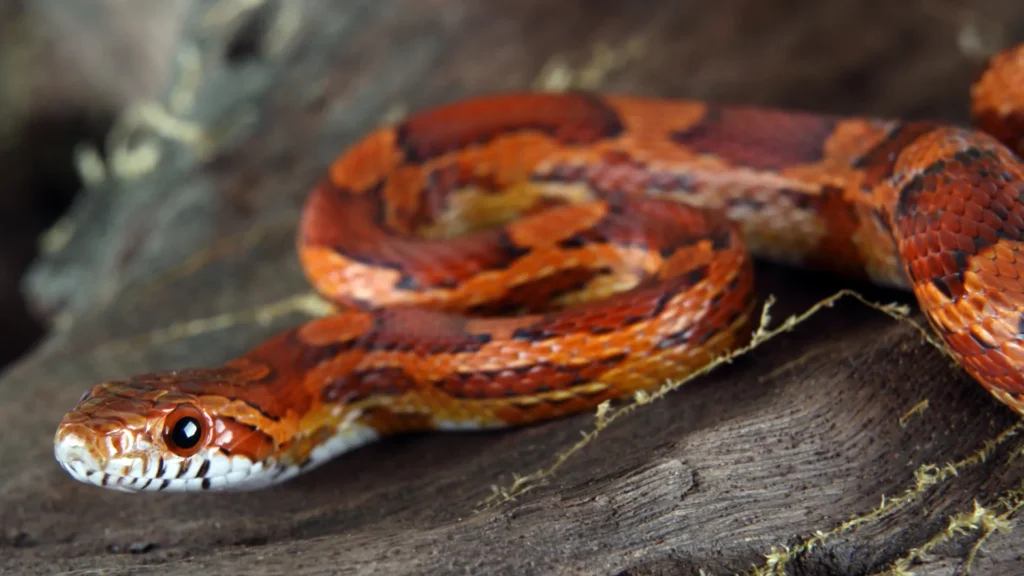
- Ideal for beginners.
- Docile, easy to handle, and available in various colors.
2. Ball Python
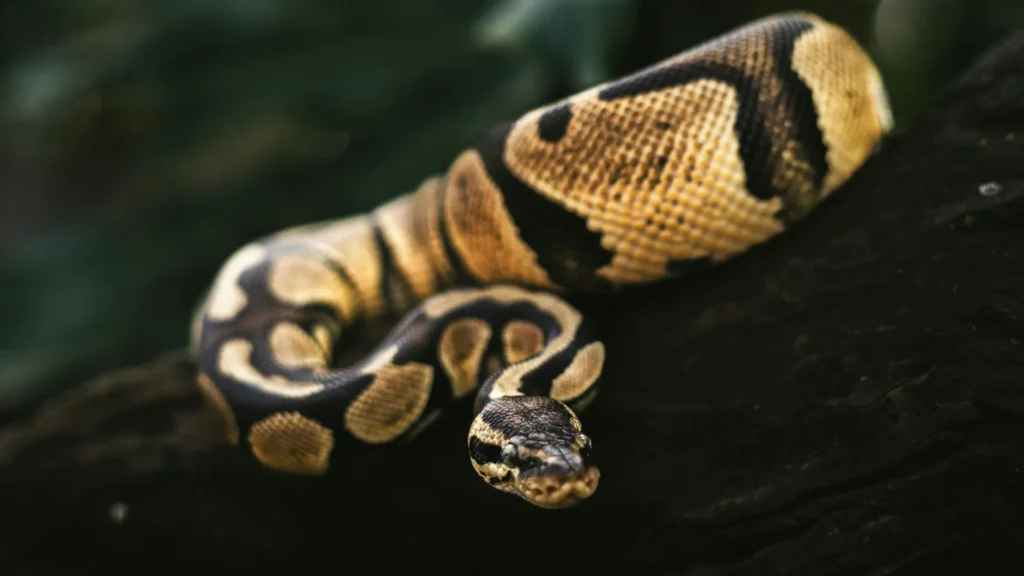
- Small size and gentle temperament.
- Known for their striking patterns.
3. California Kingsnake
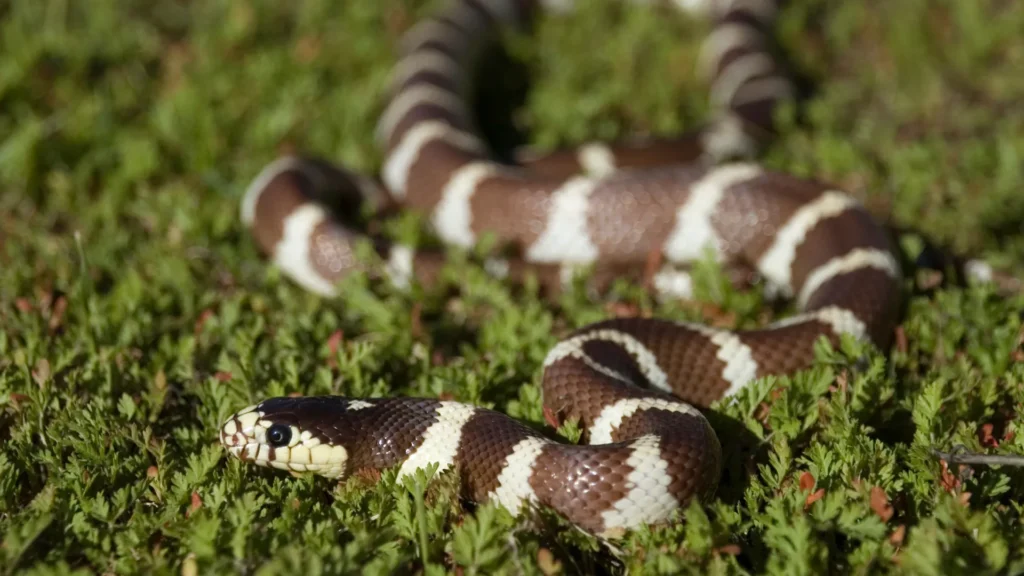
- Hardy and adaptable.
- Great for intermediate owners.
4. Rosy Boa
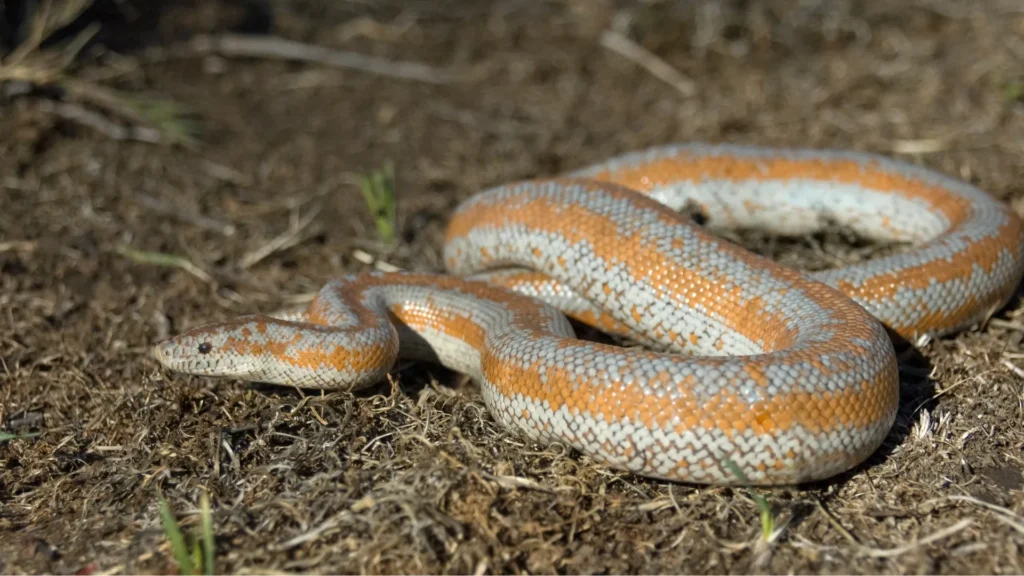
- Easygoing and small in size.
- Requires minimal space.
5. Milk Snake
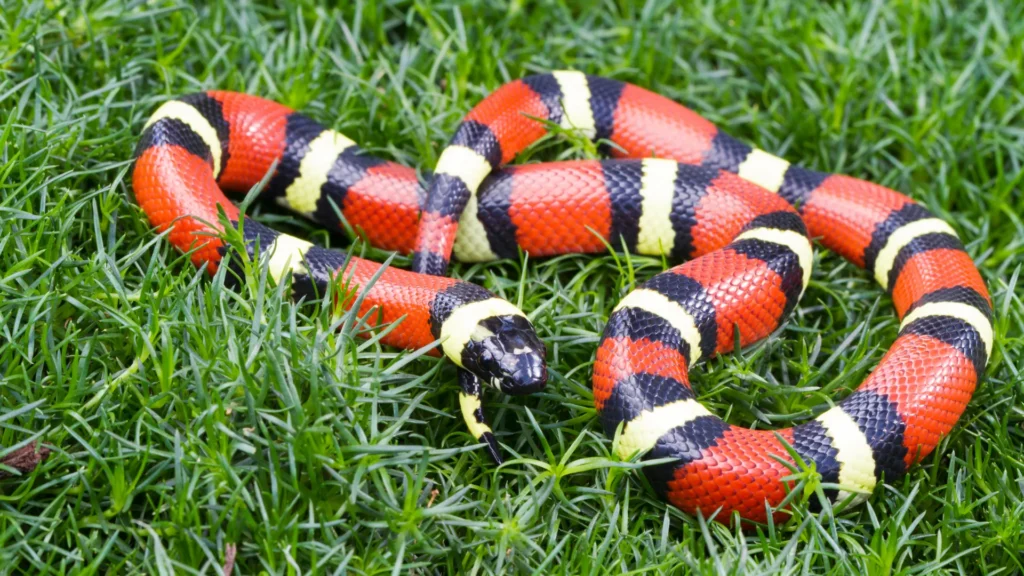
- Vibrant colors and calm demeanor.
- Suitable for slightly experienced owners.
6. Garter Snake
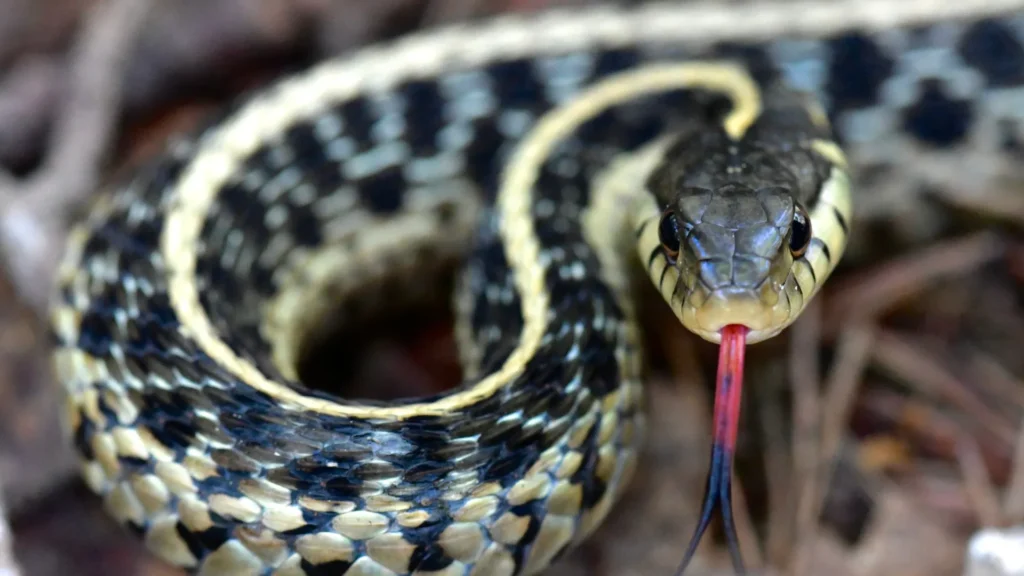
- Small, active, and easy to care for.
- A good option for beginners.
7. Children’s Python
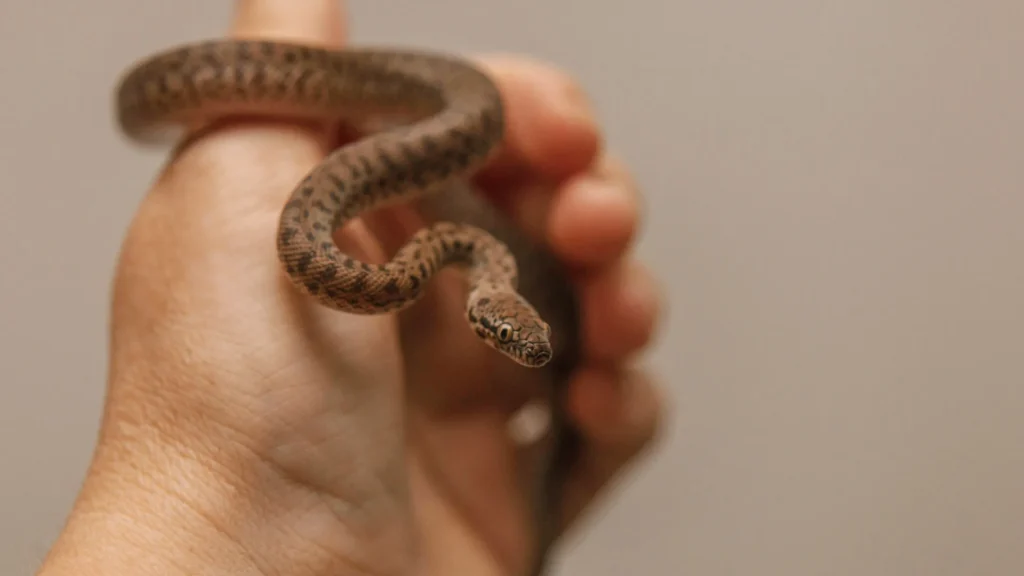
- Low maintenance and docile.
- Great for smaller enclosures.
8. Eastern Hognose Snake
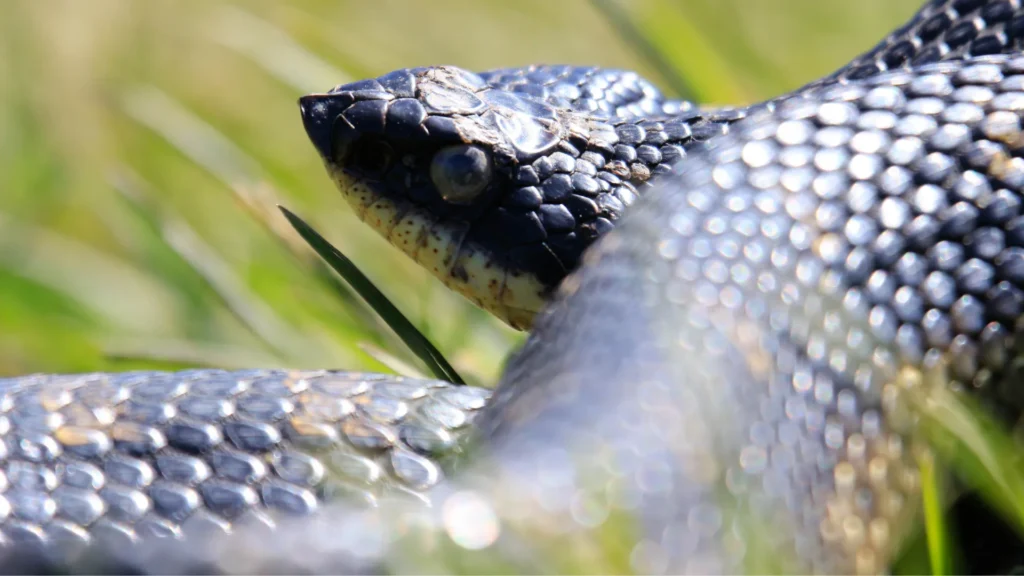
- Unique personality and appearance.
- Best for intermediate owners.
9. Rainbow Boa
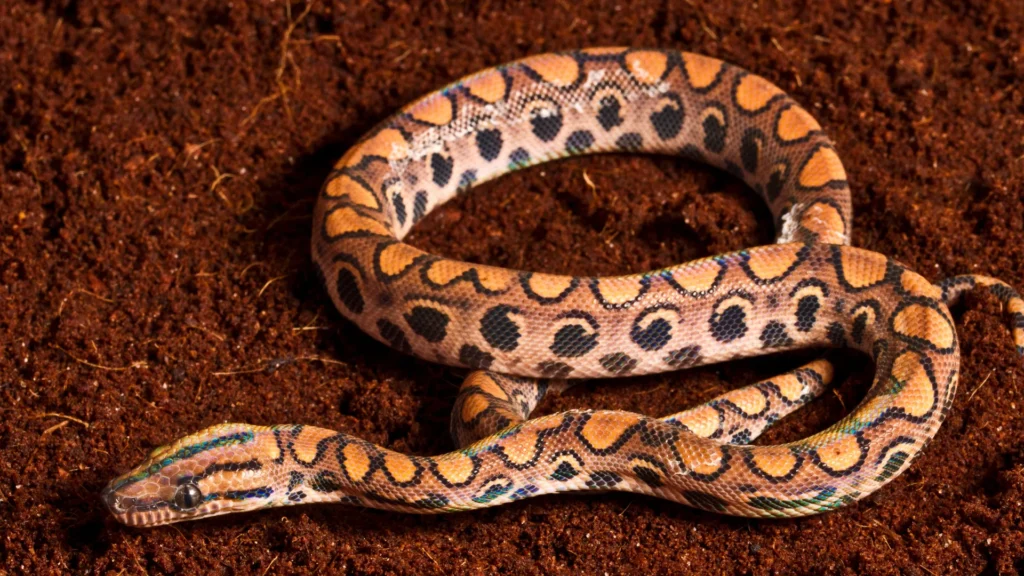
- Stunning iridescent scales.
- Recommended for experienced keepers.
10. Green Tree Python
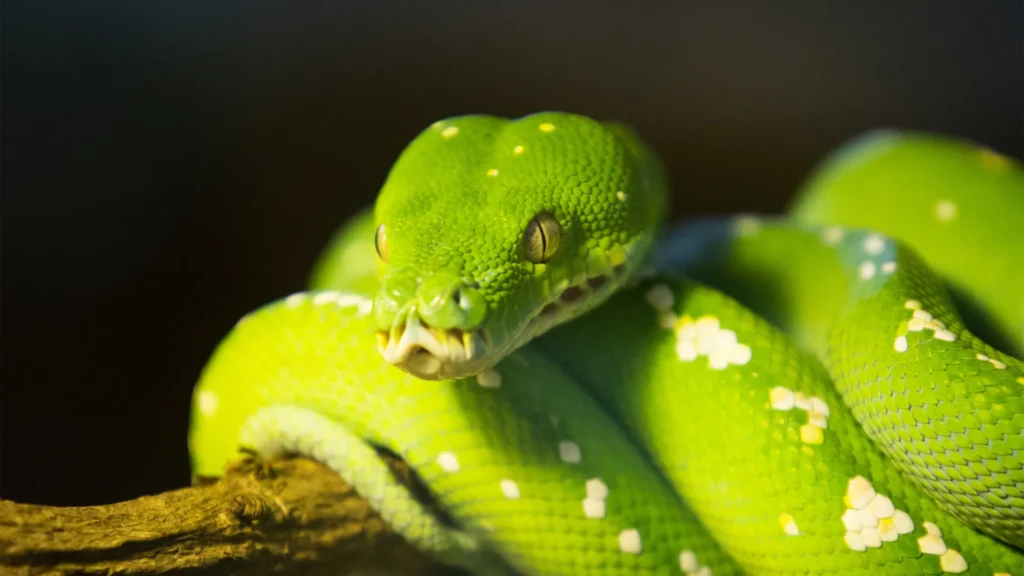
- Striking color and arboreal nature.
- Best for advanced enthusiasts.
What Do Snakes Eat?
Most pet snakes eat frozen or live prey, such as mice or rats. It’s important to choose the correct prey size relative to the snake’s width. Feeding schedules vary by species, with many requiring food every 7-10 days.
For additional tips on pet care, visit How to Care for Exotic Pets.
Setting Up the Perfect Snake Enclosure
Creating a suitable habitat is essential for your snake’s health and happiness:
- Size: Ensure the enclosure is large enough for the snake to move comfortably.
- Temperature and Humidity: Maintain a temperature gradient and appropriate humidity levels.
- Hiding Spots: Provide shelters for your snake to feel secure.
- Substrate: Use safe materials such as aspen shavings or reptile carpets.
For more on creating a stress-free environment for pets, explore Therapy Animals and Their Impact on Mental Health.
Tips for Handling and Caring for Snakes
- Always approach your snake calmly and confidently.
- Handle your snake regularly to maintain its docility, but avoid handling it during feeding or shedding.
- Clean the enclosure weekly and monitor your snake’s health for signs of illness.
For more guidance on handling pets, read Daily Tips for Working with Exotic Animals.
Challenges of Owning a Pet Snake
While snakes are relatively low-maintenance, they come with challenges:
- Feeding prey may not be suitable for all owners.
- Some species require specific temperature and humidity levels.
- Long lifespans mean a long-term commitment.
To better understand exotic pet ownership, check out Exotic Pets for Emotional Support.
Conclusion
Snakes can make wonderful and unique pets for those ready to meet their needs. The best snakes to have as pets include species like Corn Snakes and Ball Pythons, which are easy to care for and ideal for beginners. Before bringing a snake into your home, ensure you have the knowledge and resources to provide proper care.
For more about exotic pets, visit our homepage: Therappets.

